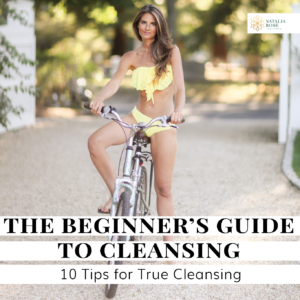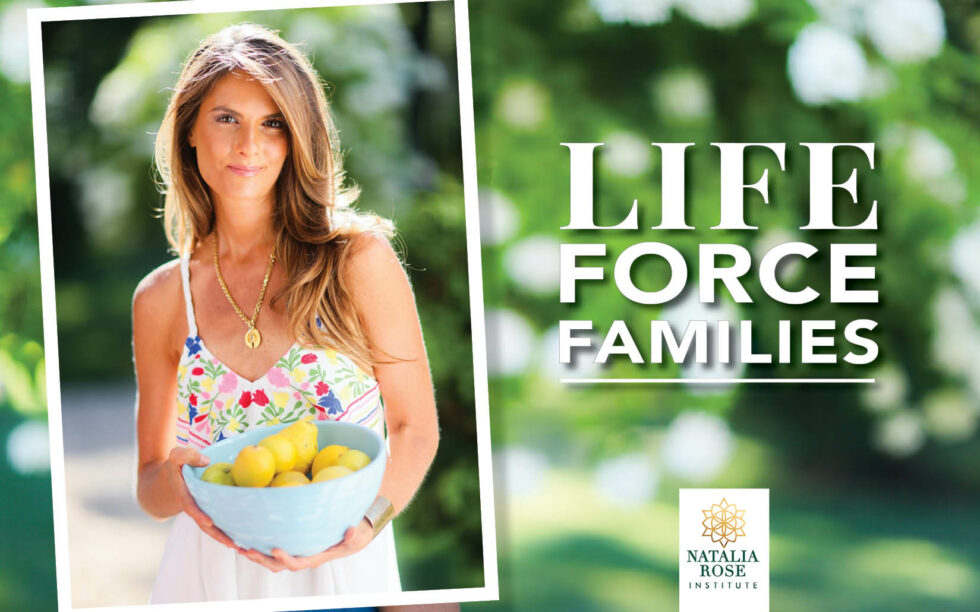At first glance, becoming raw-vegan or vegetarian seems a logical way of honoring life. Most people do so for their health or for moral reasons. I, for one, applaud anyone who looks for alternatives to the mainstream diet-lifestyle and wants to be part of the solution. But this is not the solution it is thought to be, nor does it exempt anyone from a society that kills animals and wrecks the environment for its food.
The raw-vegan/vegetarian paradigm indeed offers a lot of useful information, but much about it is still misunderstood and misinterpreted. That’s because most people fail to examine it within its full context (e.g., how the plant life is cultivated, what is consumed in the process, etc.).
Mention to a raw-vegan or vegetarian that agriculture is the single most destructive human act against life on this planet and you are likely to be met with either silence or disbelief. In most cases, people who embrace such a diet not only eat that way but identify themselves as “raw-vegans” or “vegetarians”—it’s who they are! Many of them will be stunned to hear about evils of agriculture because it calls their whole identities into question. It’s not a nice experience. This is the same reason that many mainstreamers keep their heads in the sand about the realities of our culture. They can’t face a reality that would shatter everything they know to be true.
I may be the bearer of this difficult experience for many of you, but I know the majority of you would rather know more and face this dilemma than avoid reality. It is vitally important for this topic to come out in conversation, especially when there is so much dietetic judgment being tossed around. Too many people are sporting raw-veganism and vegetarianism as a badge of honor or, worse, as a proxy pulpit for dogmatic self-righteousness.
It is time for all that to end. I hope I can offer this information in a gentle way, in a safe place to look at it, process it, and see where it leads. Ultimately, I hope that this information sparks conscious appreciation of how to nourish the body and enjoy the fruits of the earth in a less destructive way.
Most vegetarians have no idea that commercial farming (organic or otherwise, regardless of species of crop, including grain, corn, and soy) decimates animal habitats, kills animals under plow, eradicates plant species as well as millions of microbes and insects, and permanently destroys critical topsoil to the point of infertility. Commercial farming not only cruelly impacts the habitats in the immediate land that’s specifically cleared and groomed for said crops; it also dams up rivers to irrigate and provide power to these farms (often causing chemicals to leach into the water), thereby killing countless species of local fish and birds.
The common vegan-vegetarian diet, due to modern agricultural methods, is as destructive to life and to the environment as a carnivorous diet is. I hate this fact, but I accept it. In light of this knowledge, we must go further to find a real solution. We cannot just become vegan or vegetarian and stop there. (And no, I’m not suggesting breatharianism. Relax, keep reading!)
I still cringe to think of it: if I’m buying produce in the average market, I may not be buying, cooking, ordering, or otherwise serving up grilled fish, baked chicken, or impala stew to chew through with my little canines, but fish, animals, and poultry are nevertheless casualties of my salad.
I live in a city and buy produce from my local health food and gourmet stores. I enjoy and physically benefit immensely from the delicious plant-based meals I make from those purchases. But I would be gravely mistaken if I thought countless species of animals didn’t suffer and die for that salad (or even for those life-generating veggie juices and blended shakes that we use to detox and neutralize the radiation and positive ions in our environment).
As much as this distresses me, I know in all honesty that my lifestyle is not harmless. I am sullied by the stench of society; no butterfly or blue bird is likely to land on my shoulder like I’m Snow White in the forest. I am party to the destruction of our planet through agriculture. My actions support life-deteriorating acts. That’s a fact. It is some comfort to know that I am trying to do more each day to evolve my life in a life-generating direction. I dream of the day that the production of my shakes, juices, and salads will be as life-generating to the world community as it is to the community of cells in my body.
If we want to lead harmless, life-generating lives, we need to incorporate all the information we can, take the full context of what being raw, vegan, or vegetarian really means: eating small amounts of mainly light, living foods grown and gathered by the most inoffensive, conscious methods possible. We must also be willing to adjust our lives even further, in ways that might require even more sacrifice and dedication of us. Take heart: the degree to which we must change to regain our balance directly reflects the degree to which our culture has veered off course. These are the hard facts we face as children of a grossly misguided generation. Of course, it’s not all our fault: we have inherited the accumulation of so many wrong turns dating back to thousands of years ago. But it is our fault if we do nothing to get ourselves back on course!
Remember, the earth, like our bodies, is an interconnected organism. If a great portion of it is toxic, the whole is toxic. The earth’s blood (i.e., its oceans and rivers) has been compromised, and the poisons are flowing everywhere. Further, manure, the very substance that fertilizes the ground, is comprised of either dead animal flesh, bones, and blood or chemical fertilizer, NPK. By all means, eat vegan (I do, with very few exceptions, and without the label) but be conscious of this wee fact of life!
In the life cycle, the earth effectively consumes animal carcasses to yield food and give rise to more life. In other words, life consumes life to continue living and evolving. The ancients all knew and supported this. They didn’t try to live in avoidance of death. Rather, they lived with awareness of the role of death and venerated all life, especially when life was sacrificed for their continued sustenance!
It would be nice, I agree, if we could avoid encountering death on our way to nourishment, but the very cycle of life requires all bodies to return to the earth. Arguably, the microbes of earth (the soil) are at both the bottom and the top of the food chain!
The beef, poultry, dairy, and fishing industries have been rightly cursed by animal rights activists, but we cannot stop there. Nor should we assume that the consumption of animal flesh is always inappropriate. A native hunter who fully understands and honors the life he himself is taking for his sustenance, and grasps his connectedness with the whole community of life that sustains him, is doing less harm than the average uninformed raw-vegan or vegetarian of today.
Our civilization’s approach to agriculture is just as offensive to ecosystems as it is to topsoil. Agriculture has decimated the land in this country with the clearing of trees and shrubs and all that lived within them—this is in addition to destroying our topsoil. In the 1400s, the topsoil was at least 20 feet deep, and today it can barely boast a measly 2 inches, but those are 2 oh-so-precious inches! That’s not to say we should not be vegans or raw foodists, but that we should understand our dietary lifestyles in the right context.
“So what is the right context?” you might be wondering. The best I can offer at this stage, all things considered, is something that most people won’t be ready to embrace: to live with a very small vegetable garden (“Anastasia style” per Anastasia from the “Ringing Ceders” series by Vladimir Megre), encouraging the renewal of the soil and enabling wild edibles as well as wild non-edibles and the local animal species to regenerate.
In this context, with the understanding that much time and healing will be required, I can envision life returning to this planet. Not surprisingly, the solution hearkens back to a model that worked for humankind for millions of years before the thorough corruption of civilization. Our civilization emerged with agriculture; the two concepts are inseparable.
I am aware of what this would mean for life as we know it. For such a vision to take root, people would have to let go of the old paradigms. If that seems impossible, consider the unprecedented physical and emotional pain that people are suffering nowadays. We are hitting more walls than doctors have diagnoses and medications for; our health workers cannot keep up with the ills of our current way of life. The pain of civilization is closing in on our maximum thresholds of tolerance and becoming physically unbearable. Our greatest hope at this stage is that people, pushed to the brink of survival, will be forced to consider the alternatives.
New realities grow from seeds of consciousness. We have to see a future, have a vision of it, in order to find a way to get there.
It’s funny and ironic really. The only way for the soil to heal, the endangered species to multiply, our bodies to be fed the way they need to be, for all living beings to be honored and given the natural right to thrive (or die out as the case may be) is for life to go back to its wild state. This idea will likely be a stretch for most of you. I couldn’t swallow that reality until relatively recently myself.
Again, I don’t believe this has to happen immediately. What should happen immediately is for us to become conscious of how the food cycle and all natural life cycles work—the basic concepts that we should have learned before we were 5. If you can understand the nuances of the natural world and bring them in to your day-to-day consciousness and thought processes, you will be heading in the right direction.
Allowing both plants and animals to reorder themselves from the industrial chaos will recover (a) the soil, (b) many perennial plant species that are best for us, as opposed to annuals and domesticated hybrid plants that we’ve developed for taste and appearance, (c) many endangered species, and (d) the natural predator-prey relationship. For example, as the mountain lions and wolves come back, the overpopulation of deer on this continent that crowds out and threatens the lives of many bird and land species will be rebalanced.
Of course, for mountain lions and wolves to come back, cities, industries, and deforestation projects would have to be stopped and reversed. That’s a tall order, but just that mean we should avoid it. We can’t just scrap the truth because it’s scary or requires tectonic changes to our civilization. Rather, I believe we should adapt ourselves to the truth of the world in which we find ourselves. This level of change will have to come from a profound shift in worldview, a realization that there is far more value in the thriving of natural life than in material riches and positions of power.
In the meantime, we can at least be as honest and conscious as possible. I’m not quite ready to stop eating the commercially grown, domesticated hybrid we call carrots or stop buying lettuce because a bunny may have been plowed right out of this world for that lettuce to reach me. But I can be conscious of it! Further, I cannot know these things and condemn a meat eater, now can I?
I will hold onto a vision of a time when we’ll all have small gardens of our own that bypass the devastating effects of large-scale agriculture, and thus allow much of more of the earth to grow wild. It’s an evolution that starts with consciousness and may someday result in a world filled with people who have passed through the gauntlet of modern life, gleaned the lessons from it, and then left it behind for the far sweeter, more balanced path of the natural world.
We need not avoid death to practice harmlessness. We need only be conscious of our interconnection and truly love and appreciate the fluid exchange of life and death. Can we live without death? Can the lion lie down with the lamb? I tend to believe we are part of a much bigger, more spiritual vision, but as long as we’re not conscious enough to embrace what’s real in the physical world, we’ll never be ready to expand our awareness to greater parts of our being. We must begin with learning how to be good stewards of the physical world.
This will require our patience and dedication. Nothing will happen overnight. Baby steps, progress—not perfection. When we shift our consciousness, we shift our world. True change comes from within and sends meaningful ripples outward. We need to build a vision for a new world to take form. And that’s the short, easy answer, friends.



